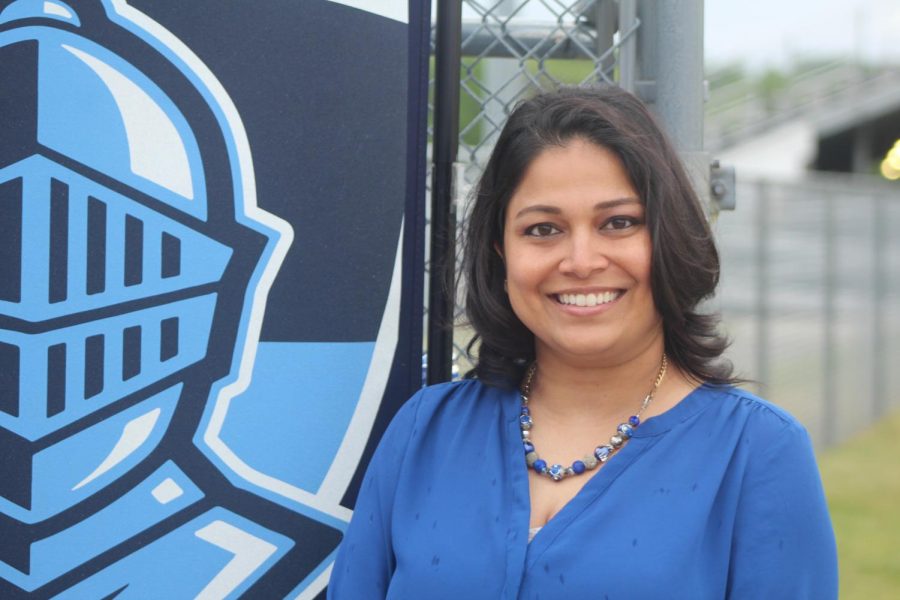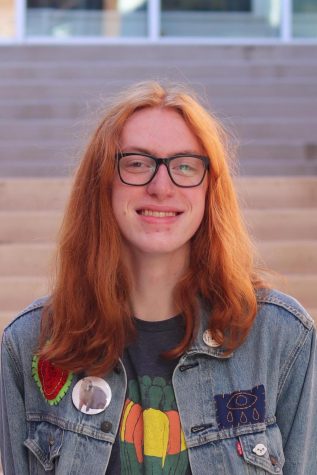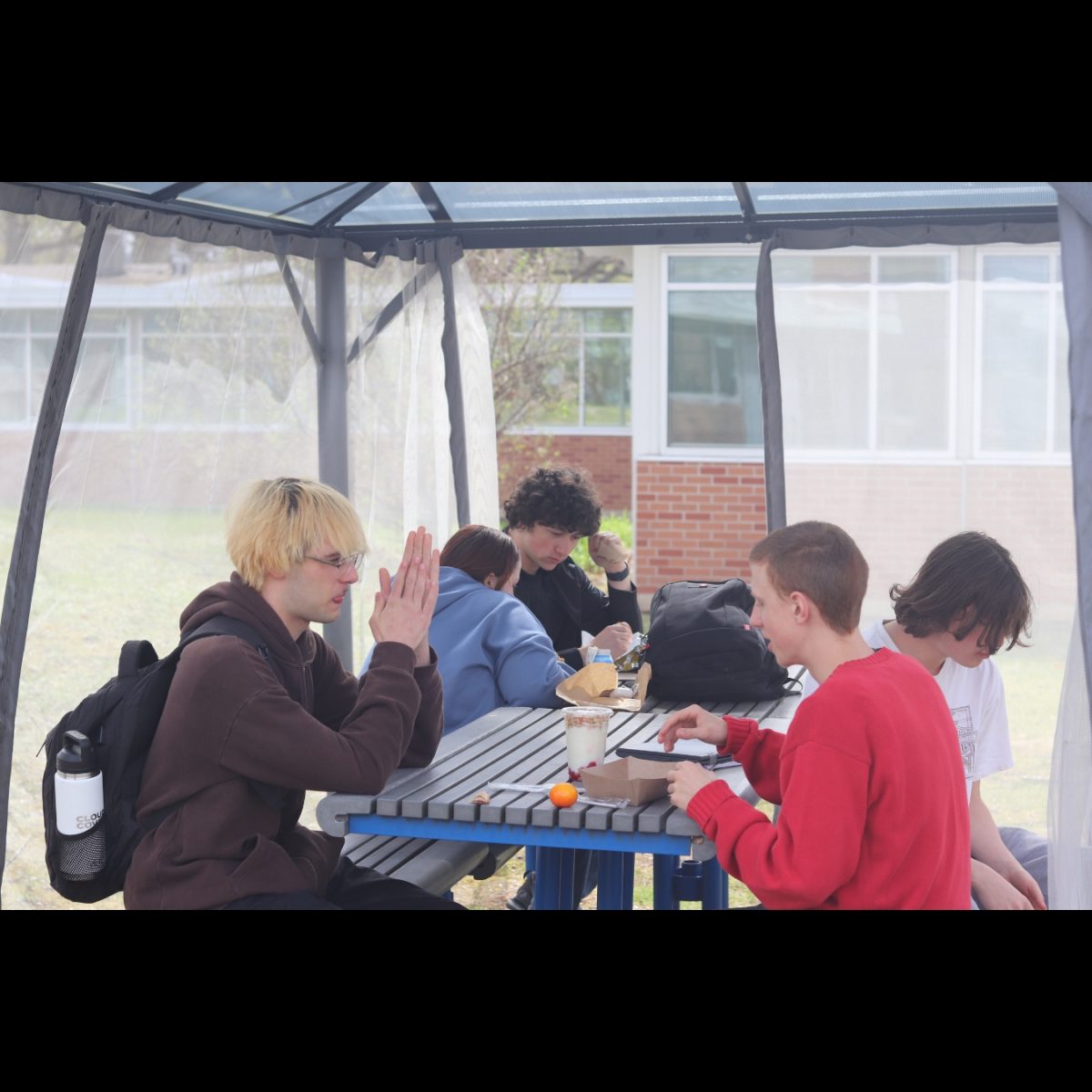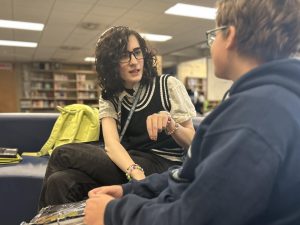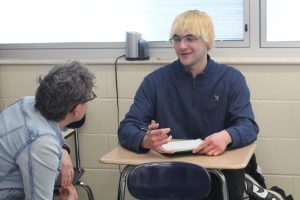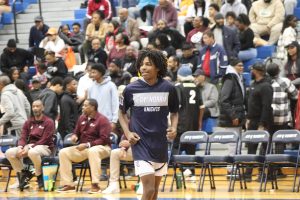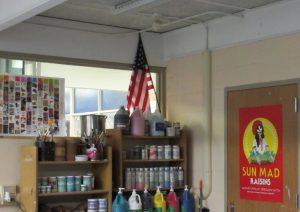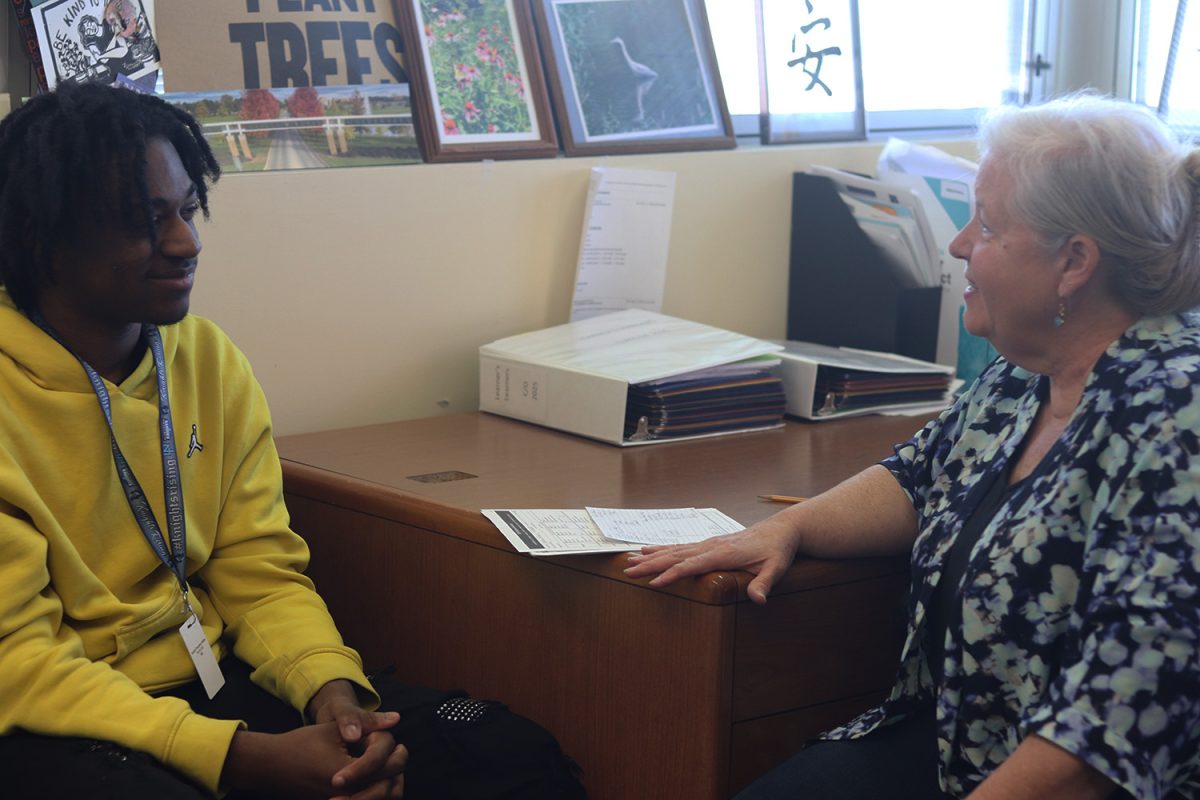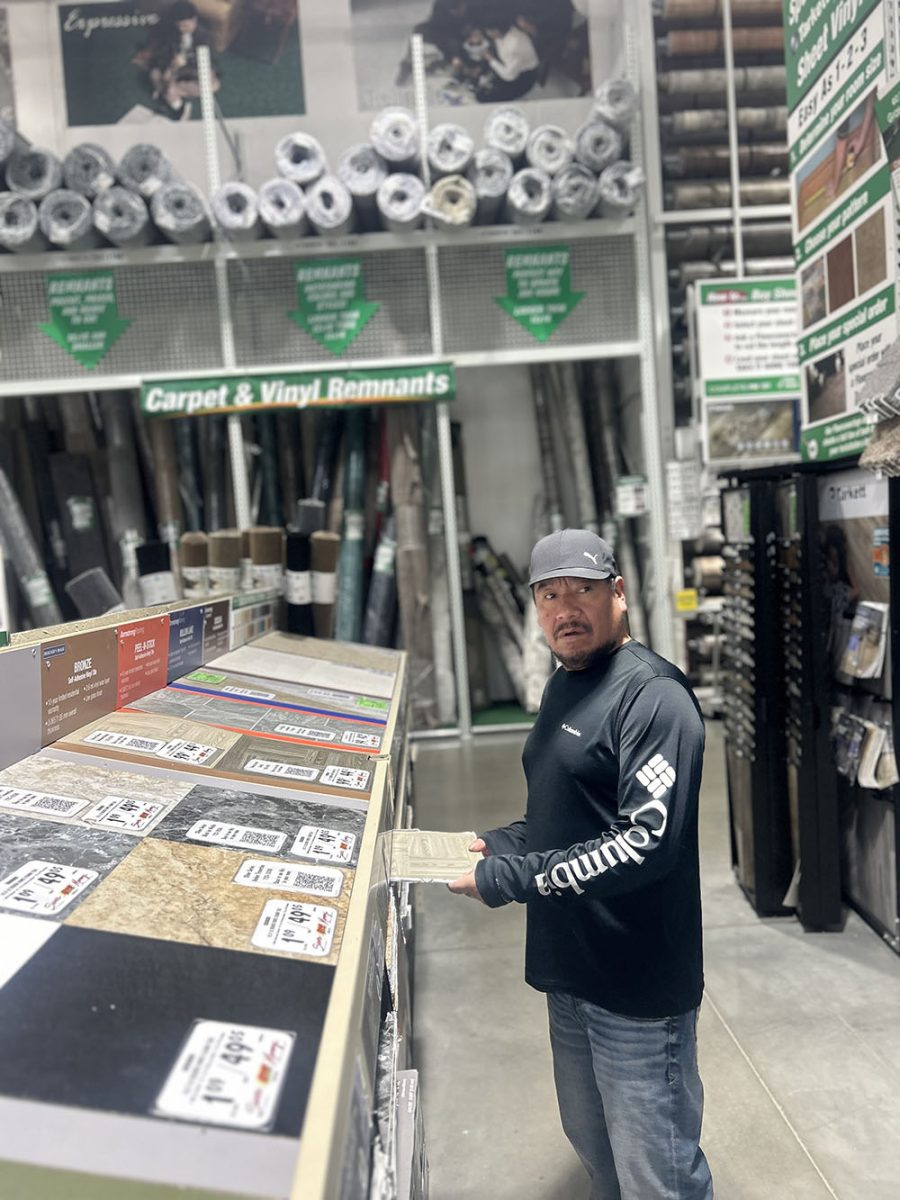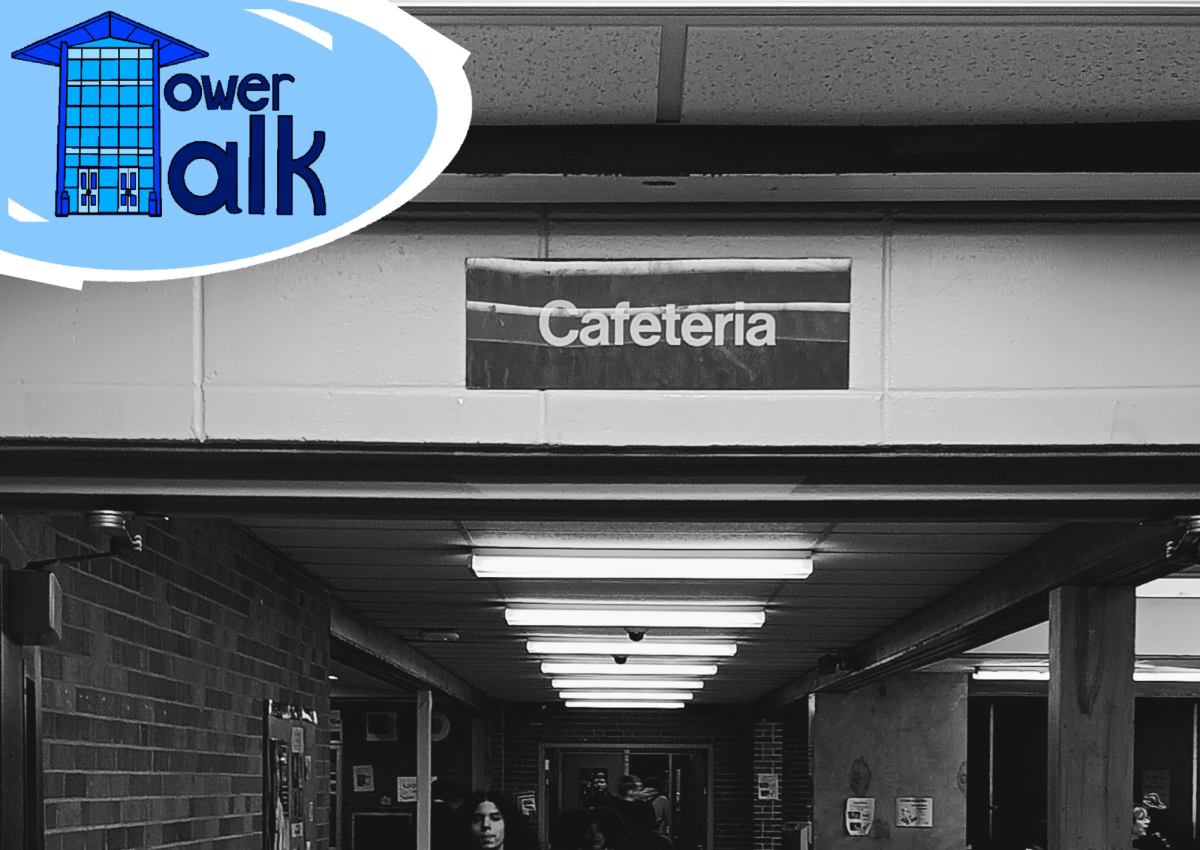Dr. Rita Raichoudhuri: a year as superintendent in review
Credit: Tisha Pankop
KPS Superintendent Dr. Rita Raichoudhuri poses for a photo at the Loy Norrix Class of 2021 commencement ceremony. This was one of few opportunities she had this year to attend an in-person event in her new role.
June 17, 2021
“In some sense it feels like it’s been multiple years and in some senses it feels like it’s only been a few months. It’s that relativity piece depending on the context because the pandemic has sort of skewed perspective quite a bit based on a lot of factors,” said Kalamazoo Public Schools superintendent Dr. Rita Raichoudhuri.
Raichoudhuri began in her position as superintendent on June 1, 2020. Exactly one year later, on June 1, 2021, she took the time to reflect on her experience thus far.
The search for a new superintendent began in May 2019 when former KPS superintendent Dr. Michael Rice was chosen for the position of state superintendent after spending 12 years at the helm of the district. Deputy Superintendent Gary Start served as interim, calling shots regarding the pandemic during the 2019-2020 school year until Raichoudhuri, who previously served as an administrator in Chicago Public Schools, was selected in early 2020. Right from the get-go, she faced the daunting obstacle of organizing the 2020-2021 school year amidst the pandemic.
“I couldn’t reach out and make connections and form relationships in person. Restaurants were closed at the time, museums, everything was closed so my entrée into the new community was meeting people the best I could via a computer screen and not having access to all the great things that Kalamazoo boasts,” Raichoudhuri said. “It took me a while to even find a grocery store, and so it was tough emotionally to make the transition, but then once I got started with my work, there were very little other things really to even have the mental capacity to focus on, so that definitely helped.”
Lacking in-person school board meetings and events, Raichoudhuri had to find her own approach to community outreach. She hosted a series of virtual town hall meetings, beginning within the first weeks of her tenure.
“I have hosted a series of town halls that’s open to the entire community: parents, community partners, employees, students, whoever wants to participate. It has been themed around COVID and schooling during COVID, so I wish it could’ve been an open-ended meet-and-greet–get to know each other–but the urgency of the year kind of forced me to turn these town halls into serious matters of informing the public of what we were doing, getting input, incorporating the input into the strategies and the planning, and then reporting back out,” Raichoudhuri said.
Town halls aren’t the only way Raichoudhuri has compensated for lost time. Meetings with community partners and reading to elementary schoolers, all done virtually, are among strategies she’s used to become acquainted with the community.
Despite her best efforts, Raichoudhuri has had a polar reception among the constituents of KPS. A series of controversial decisions by the Board of Education to continue virtual schooling divided the community and left many feeling unheard.
At a virtual Feb. 25 school board meeting confirming the decision to remain virtual for the third trimester, parents called in for over two hours, both contesting and reaffirming the decision. As a result of this feedback, she feels she has grown in her leadership skills.
“This year was tough, there was some significant backlash and there were threats. It was a heightened level of negativity. I think that what it did was because I wasn’t necessarily ever in my career subjected to that level of–I feel like scrutiny isn’t the right word because I’ve always been scrutinized in a good way which helped me grow in my career–but sort of that level of meanness, for lack of a better term,” Raichoudhuri said. “It helped me understand a few things about myself and my leadership.”
Out of the things she’s learned this past year, one of the most important was realizing just how thick her skin is. Being frequently under fire, this trait of her’s was made prudent.
“I have fairly thick skin which I think is important to have in this role because this is the COVID or no COVID, there are gonna be other instances when you are making decisions because you have to. That is the job.” Raichoudhuri continued, “You’re going to have to make tough decisions and those decisions are going to sit well with some and not sit well with others. You still have to be firm in your leadership and decision-making process because once you start wavering, that’s what causes instability in the district because it’s not just you, then everybody else, your leadership team, everybody who is working to make your vision a reality, they all have to shift of course, and that destabilizes the district and ultimately negatively impact students.”
Alongside the administrative staff at Loy Norrix, principal Christopher Aguinaga has experienced Raichoudhuri’s leadership from the inside.
“She has given us steady and predictable leadership which is so important to lean on during turbulent times like the pandemic. She has supported our decisions, even some that are not always popular,” he said. “I find Dr. Raichoudhuri to be very open with communication and quite friendly. She is thorough and always willing to listen to her administrative team.”
While negative feedback was more visible, the positive reaction to the superintendent’s performance was equally important in her learning process.
“Parents who were a little apprehensive about virtual learning when the school year started and have seen their children sort of blossom over the year and become stronger self-advocates, gain a host of digital skills that they didn’t have before, and they’re seeing their children for the first time as learners, as active learners because it’s happening in their own spaces, a process and moment in time that parents are usually never privy to. That was something that they really appreciated, and they wanted to thank me for creating the opportunities to make that happen, so those were some really nice moments,” Raichoudhuri said.
Community members commended Raichoudhuri for developing a concrete system to determine whether or not to hold in-person schooling.
“I got a lot of supporting emails and phone calls in my decision-making process: how I made the decisions, the weighted formula, the town halls, the input sessions, that it was very data and scientifically based. I got encouragement and appreciation for the processes I use as a leader. Those were nice moments because it’s such an unprecedented year that you were making decisions and you’re telling yourself, ‘all I can do is do what I think is best for kids,’” Raichoudhuri continued, “And then you know that your decisions will not be what’s best for everyone and being comfortable with that, and there’s always going to be discomfort with that, but being comfortable but when you get those sort of confirmations from the people you’re serving that definitely helps.”
All in all, Raichoudhuri is very pleased with how KPS has handled the pandemic. As one of few districts in Michigan that remained entirely virtual year-long, the district was prone to scrutiny from community members vying for a hybrid or in-person option. She feels that in spite of the scrutiny, the district made the correct decisions based on science and helped to curb coronavirus infections in the area.
“I meet with all of the superintendents in the region, there are eight of us, I meet with them every [Monday] morning.” Raichoudhuri continued, “So I’m hearing their stories, and I’m thinking to myself, ‘If I don’t learn from this, then I’m not a good leader. If I don’t shield my students and my staff from what I know is going to inevitably happen, given we are the largest school district, if it’s happening in smaller ones it will most definitely happen here, then I haven’t learned from the mistakes of others’”
When other Michigan schools opened in early March, the state saw a 30% increase in infection rate over that next week, according to the Michigan Department of Health and Human Services. By learning from the actions of others, Raichoudhuri and the KPS Board of Education helped to dampen this spike in Kalamazoo County.
“We’ve been able to not only keep our students and staff safe but our community at large safe because we all intermingle and go back to our families and visit our grandparents,” Raichoudhuri said. “I’m very proud of the fact we were able to maintain stability and consistency all year, not just in academics and our school related services but from a safety standpoint for our community at large, that KPS has played a big role in that.”
With her first year coming to a close, Raichoudhuri is looking to the future. Spearheading the first of many steps toward the community’s return to normal, she announced the Summer Readiness program in March, summer school-like sessions taking place in June and July designed for students to get re-accustomed to in-person schooling.
“We are doing it very intentionally because we want students to reexperience what it feels like to be in spaces with their peers, what it feels like to be in a classroom with a teacher, reprogramming the brain after 18 months of isolation or not participating in brick-and-mortar schooling.” Raichoudhuri continued, “That period of time is really important to transition back into fall, which for most students will look very similar to pre-pandemic days but with added protection of course.”
This past year, as tough as it’s been for everyone, has exposed much about the world we live in. Through hardship, Raichoudhuri has gotten insight into the inner workings of the community from a perspective that wouldn’t be possible in any given year. It’s by these means that she has discovered the involved nature of KPS families.
“The community is so involved, and the community is also so invested in the school system and as I was researching KPS, and I was looking back at all of the millages and the bonds, every single time the community has voted to pass those initiatives whereas in other communities you don’t see that with as much consistency so it’s clear that there’s a family feeling here in Kalamazoo,” Raichoudhuri continued, “that the community is invested in the district and the district is invested in the community.”
“The Kalamazoo Promise would be an example of such an investment ,and I think people here in Kalamazoo are also long-term, whether they move away or not, are long-term supporters of the school district and the community at large, so there’s a lot of interest, there’s a lot of dedication and effort put by others that are not necessarily involved directly in the school system which always is a strength.”


